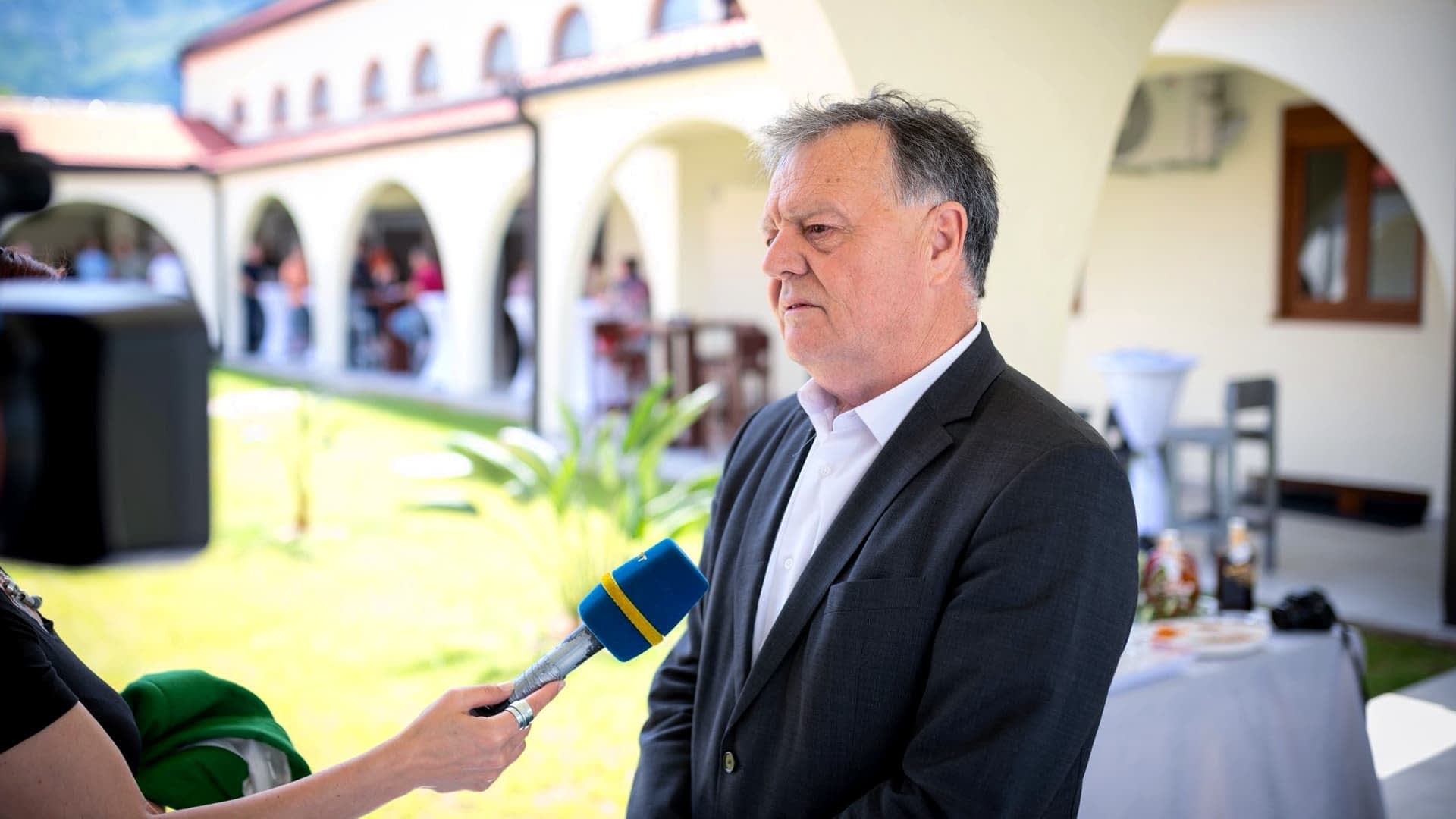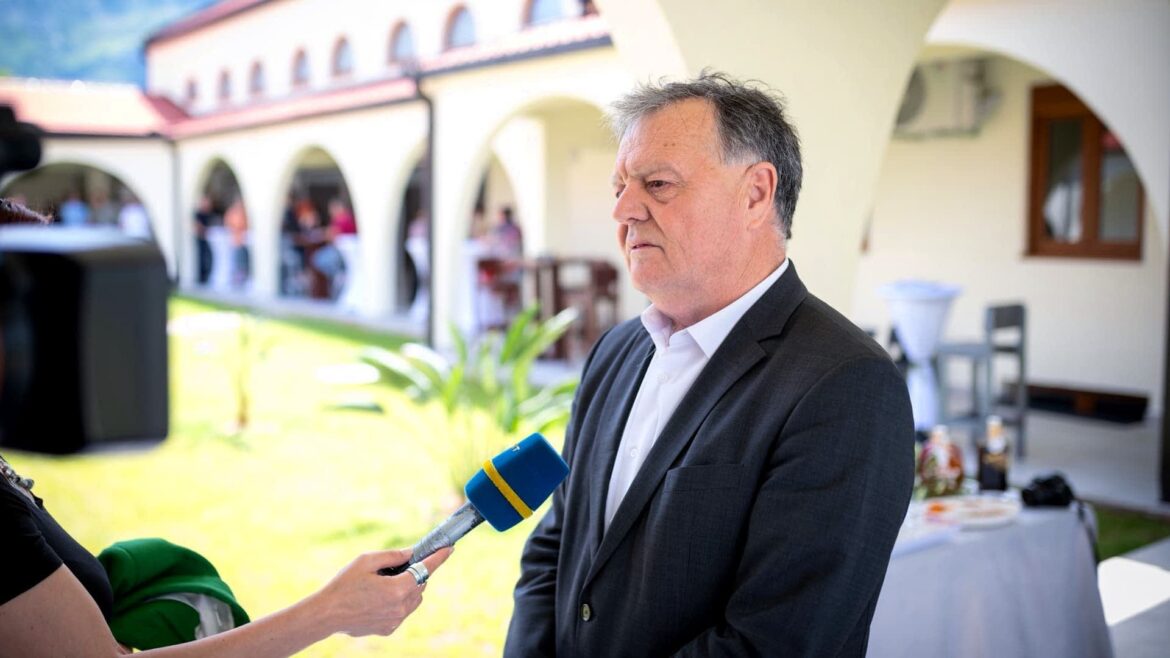Summary
The article discusses a new study that found a link between air pollution and an increased risk of developing Alzheimer’s disease. Researchers discovered that exposure to fine particulate matter was associated with higher levels of amyloid plaques in the brain, a hallmark of Alzheimer’s disease.
Olive growers from Herzegovina are eagerly anticipating the International Symposium on Olive Oils of Croatia and the Adriatic Coast, set to take place September 16 – 18 in Postira, on the Croatian island of Brač.
“We will gladly attend,” said Prof. Marko Ivanković, director of the Federal Agromediterranean Institute (FAZ) in Mostar, Herzegovina’s largest city and a region where olives have been cultivated for centuries. Local producers and experts are particularly excited that the symposium will bring together representatives from all four Eastern Adriatic nations — Croatia, Slovenia, Bosnia and Herzegovina, and Montenegro — alongside researchers, educators, and culinary professionals from around the world.
Rising Recognition for Herzegovinian Oils
For Herzegovinian producers, the event is an opportunity to showcase oils that have recently gained international recognition. “Herzegovinian olive oils are now recognized as premium quality, although until recently few outside of Bosnia and Herzegovina had heard of them,” Ivanković said.
 Marko Ivanković, director of the Federal Agromediterranean Institute (FAZ) in Mostar
Marko Ivanković, director of the Federal Agromediterranean Institute (FAZ) in Mostar
The region’s olive-growing renaissance began just 15 years ago, when only 80 hectares were under cultivation. Today, the figure stands at 668 hectares, with a strategic goal of reaching 1,000 hectares by 2030. Annual production, now about 380,000 liters, is expected to double in the coming years.
The foundation for this growth is strong: an almost ideal terroir of soil, climate, and water; a sensory analysis panel; and the establishment in 2020 of the Herzegovinian Association of Olive Growers and Producers (HUUM), which brings together Croats, Bosniaks, and Serbs. Together, FAZ and HUUM have secured protected designation of origin (PDO) status, launched the regional brand Golden Drops of Herzegovina, and developed rigorous quality testing systems.
Recent lab analyses confirm the oils’ nutritional excellence. At the latest “Days of Olives and Olive Oil” festival, 60 percent of samples tested contained 250 milligrams or more of polyphenols per liter — meeting the European Union’s health claim regulation (EU 432/2012). “Oils rich in polyphenols have greater health benefits,” Ivanković explained.
That quality has translated to international success. At the 2025 World Olive Oil Competition, all 11 Herzegovinian entries earned medals — six gold and five silver.
Collaboration Across Borders
The symposium will also serve as a forum for deeper cooperation among Adriatic olive-growing nations. Ivanković plans to propose a cross-border project to study the terroir of the Eastern Adriatic in detail. “We could answer the question of why our oils achieve such high quality and why they command higher market prices than those from Italy, Spain, Turkey, or Greece,” he said.
Herzegovina, he noted, sits on the northernmost edge of viable olive-growing zones. Its unique climate — hot days and cool nights — may pose risks of frost but also fosters high polyphenol content in its oils. “Perhaps what was once a disadvantage has become an advantage under climate change,” Ivanković added.
Building a Brand and a Future
Beyond the lab and the groves, Herzegovina is developing oleotourism. The planned “Olive Oil Roads of Herzegovina” project aims to establish a network of up to 12 tasting rooms, promoting olive oil alongside other local products. Long-term ambitions include expanding the initiative across all four Adriatic countries.
“The years ahead will require hard work to promote our brand and establish Herzegovina as a recognized olive-growing region,” Ivanković said. “One of our goals is to send at least 30 samples to New York next year. There is no better promotion for producers than to be featured in the Official Guide to the World’s Best Olive Oils for an entire year.”
Spotlight on Postira
The symposium in Postira will open on September 16 with a welcome hosted by Olive Oil Times publisher Curtis Cord and Croatian Minister of Tourism and Sport Tonči Glavina. Over three days, participants will take part in guided tastings, workshops, technical presentations, and live culinary demonstrations, while exploring Brač’s ancient olive groves — home to more than a million trees.
The gathering will conclude with a ceremony honoring producers of excellence and celebrating the Eastern Adriatic’s growing influence in the world of extra virgin olive oil. Organizers will also present the Olive Oil Times Champion of Excellence awards to individuals whose vision and leadership have significantly advanced the sector.


Dining and Cooking